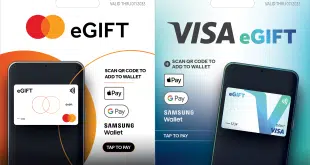In a move that could bring millions of new users to a popular prepaid card program, the U.S. Department of the Treasury on Tuesday issued a final rule mandating that Social Security and other government benefits be paid to beneficiaries electronically. Under the new rule, beneficiaries will receive direct deposits into their bank accounts or have the funds loaded on a prepaid card. They will no longer receive checks.
Persons who receive Social Security, Supplemental Security Income, Veterans Affairs, Railroad Retirement Board, Office of Personnel Management benefits and other non-tax payments have until March 1, 2013 to sign up to receive the benefits electronically. The rule will start to apply for new recipients on May 1. The latter date has been moved back from March 1 to give prospective recipients more time, Treasury says.
The final rule comes after the Treasury Department in April first proposed its plan to eliminate checks. It issued a proposed rule in June and took comments through Aug. 16. In a release issued Tuesday, Treasury said it expects the change to save $120 million annually in costs associated with sending paper checks. It also says the move will result in $1 billion in savings for Social Security over the next 10 years.
While millions of recipients have voluntarily given up checks to receive their benefits electronically, some 11 million persons still get checks, of whom about 4 million have no bank account. Since the prepaid card, known as the Direct Express card, was introduced in 2008, about 1.5 million recipients have signed up for it. The card, issued by Dallas-based Comerica Bank and branded with MasterCard, cannot be loaded with funds other than federal benefits.
Direct Express has been a popular program, with just under half a million new cardholders added since August. Walt Henderson, director of the EFT Strategy Division at Treasury, tells Digital Transactions News the rule will likely lead to “steady growth” in card enrollments, though the department has not made specific projections. Comerica, which has a five-year contract to issue the card, did not return a call seeking comment.
Not only does the product appeal to the unbanked beneficiaries, Henderson says, but it also could be taken up by a number of those with bank accounts. Treasury does not keep track of how many current Direct Express users have bank accounts, but Henderson says “anecdotal” evidence indicates that at least some users are banked. He adds that Treasury is talking to other government agencies about paying electronically the benefits they administer, which could add further to the cardholder rolls.
Some of the comments filed on the rule last summer came from consumer groups concerned about Comerica’s fees for the card. It has no activation or dormancy fees but offers only one free ATM withdrawal per benefit deposit. Further withdrawals cost 90 cents each. In its filing, Consumers Union said it would like to see more free withdrawals permitted. Similarly, paper statements cost 75 cents, another fee the consumer-advocacy group said it would like to see eliminated or at least reduced.
Henderson says none of the fees for the card has been changed. “It’s possible to use the card for free if you use the free withdrawal and find a surcharge-free ATM,” he argues.
While still expressing some concern about the Direct Express card’s withdrawal fees, Suzanne Martindale, an attorney and associate policy analyst at Consumers Union’s San Francisco office, says the card’s pricing and Regulation E protection make it “one of the better cards on the market.” The consumer group’s larger concern, she says, is that some benefit recipients might opt for direct deposit into other general-purpose reloadable cards that charge more fees or don’t offer Reg E protections governing cases of unauthorized transactions, for example.
To address that problem, Treasury issued for comment an interim final rule spelling out conditions under which recipients can link their benefits to prepaid cards other than Direct Express.




